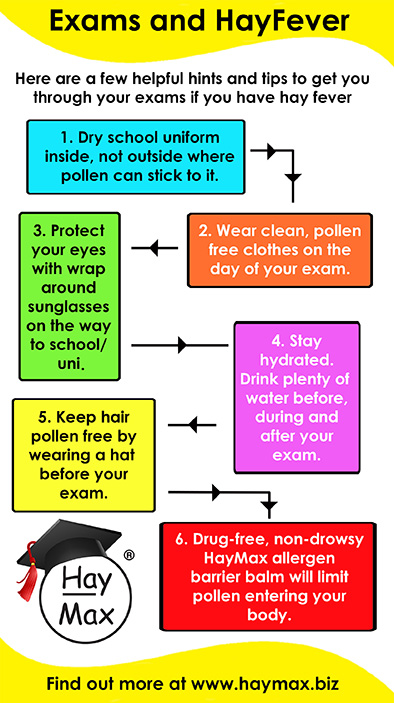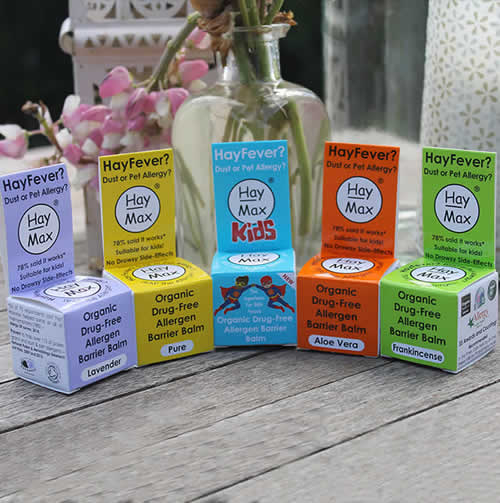exams & allergies
feeling your best for exams during hay fever season
The impact of hay fever for many students taking exams really cannot be ignored. The peak onset of hayfever happens during adolescence. As many as 63% of students taking exams surveyed by a 2006 survey reported hayfever symptoms. (Survey commissioned by the charity Education for Health).
The study found that students with hayfever were 40% more likely to drop a grade between their mock and final exams and those taking antihistamines were 70% more likely to drop a grade. Students with severe hayfever and a history of symptoms in previous years were twice as likely to drop a grade.
More than 1,800 students aged 15 to 17 were surveyed, all of whom were taking GCSE’s. A total of 28% of students surveyed who were taking medication were using a sedating antihistamine.
The authors of the study recommended that moving the timings of examinations, so as not to be held during the peak hayfever season, be considered.
Hayfever during exams also affects thousands of University students each Summer.
Researchers said old-generation sedating antihistamines have been found to have adverse effects on attention span, working memory, vigilance and speed, as well as higher levels of fatigue and lower levels of motivation and activity. Disturbed sleep could also have a knock on effect the next day.
Visit the NHS Website for lots of useful information on how to recognise hay fever in children, how to distinguish it from other allergies, and how to help your child or children cope with the symptoms.
TIPS FOR TEACHERS:
- If possible, keep classroom windows closed on high pollen count days, and open interior doors instead to allow air flow. This is to limit the amount of pollen that is blown into the classroom.
- Prevailing winds come from the west, so housing the exam in an east-facing hall with the windows closed might help.
- Ensure that classroom carpets are vacuumed every day to remove pollen that has settled. Using vacuum cleaners with HEPA filters ensures that pollen, dust allergens or any other airborne allergens are caught.
- If the school has air conditioned areas consider using these for exams and check that the air conditioning filters exclude pollen.
- Allow children to have water readily available. Staying hydrated is really important for keeping hay fever symptoms under control.
- Encourage kids to tie their hair back away from their faces. Hair traps pollen. This is easier with younger ones, but it’s worth informing teenagers too.
- Read the infographic below for more helpful suggestions for your students.





